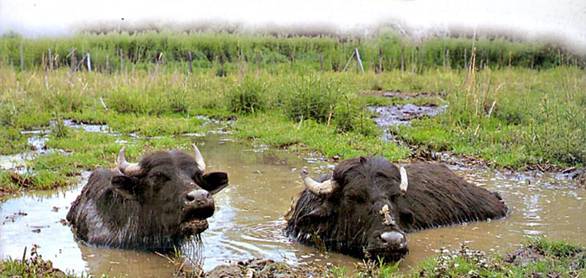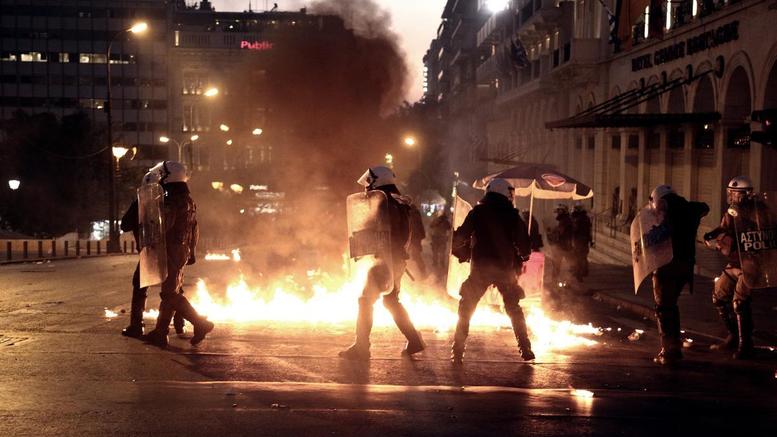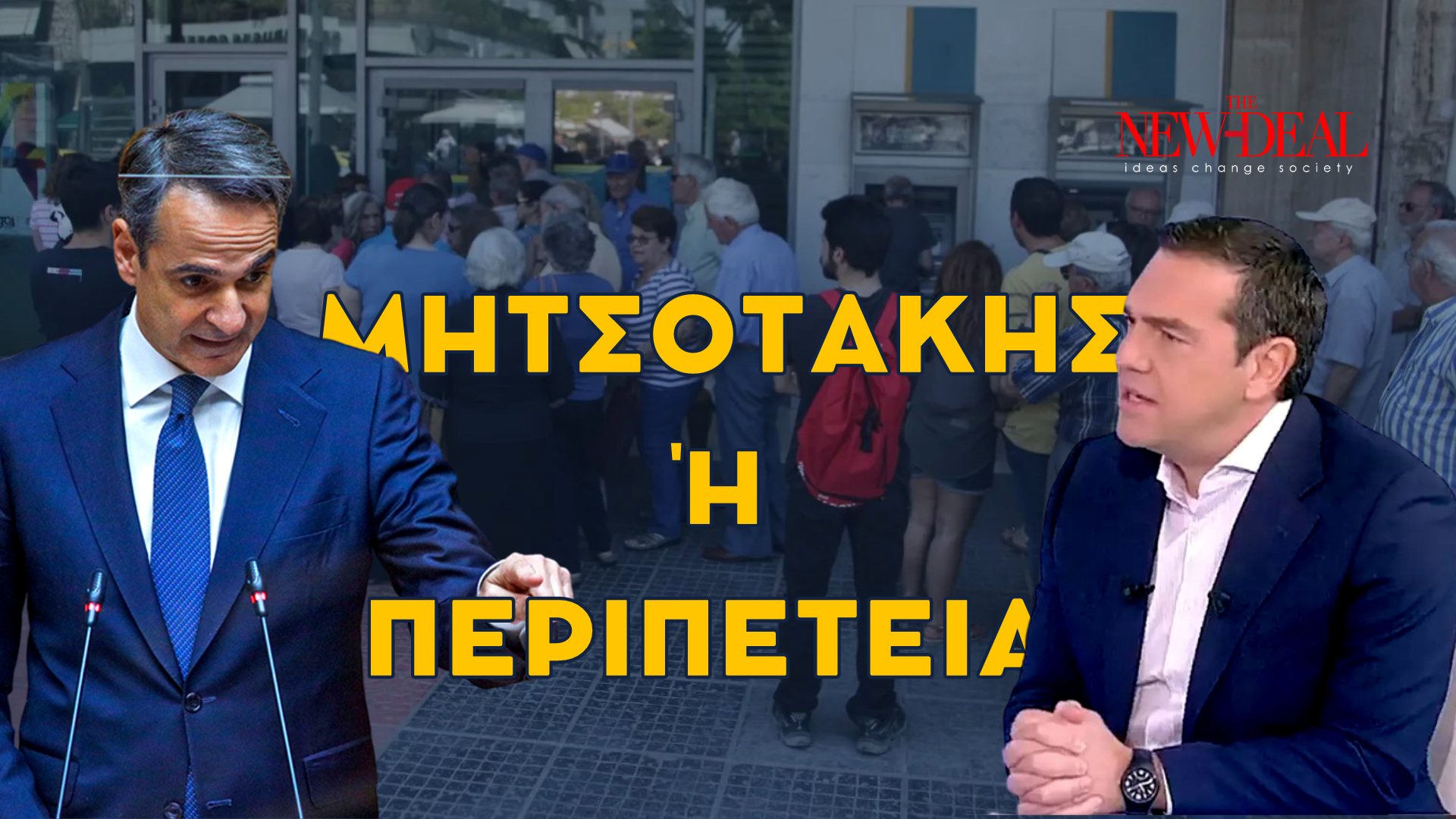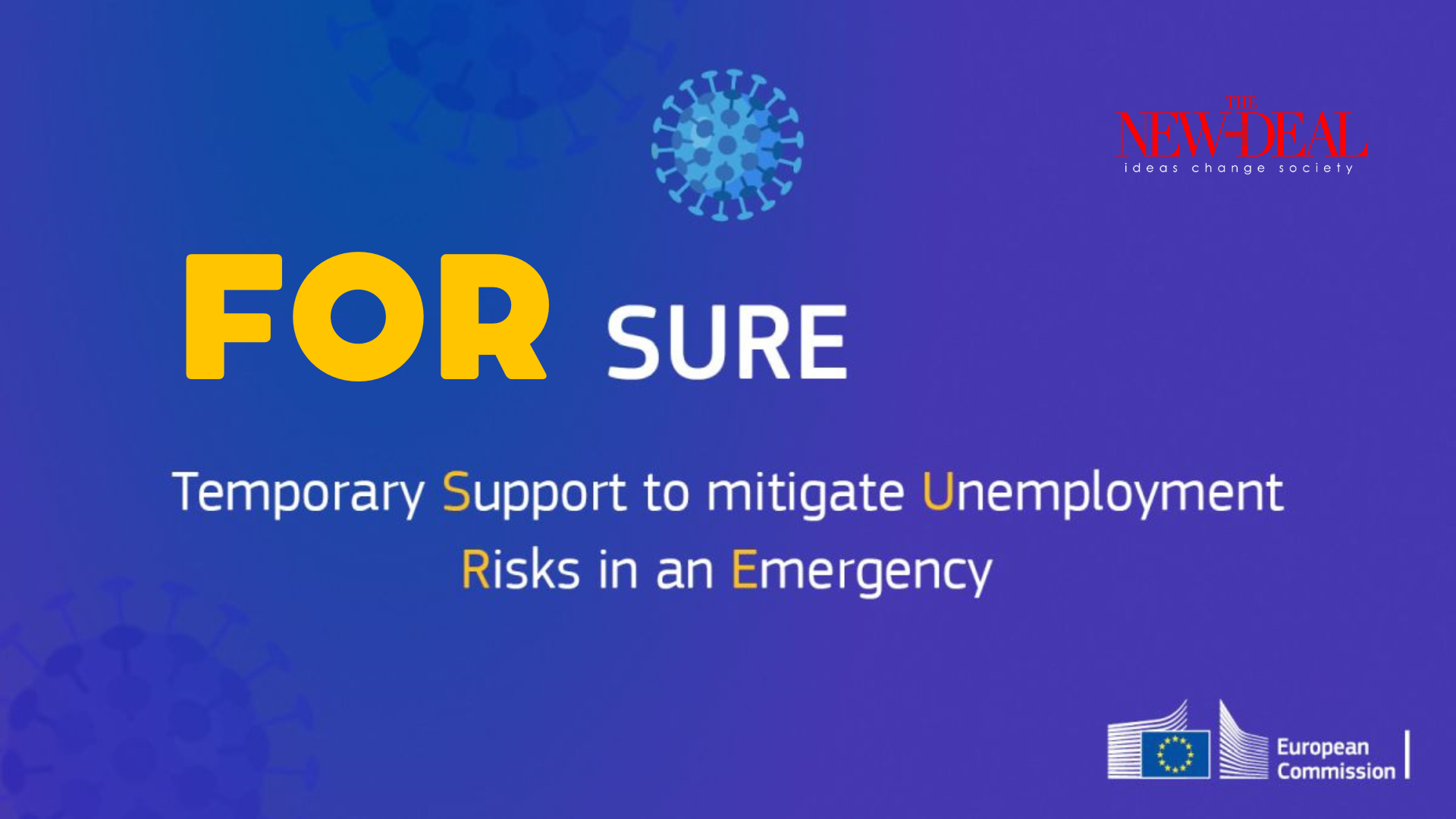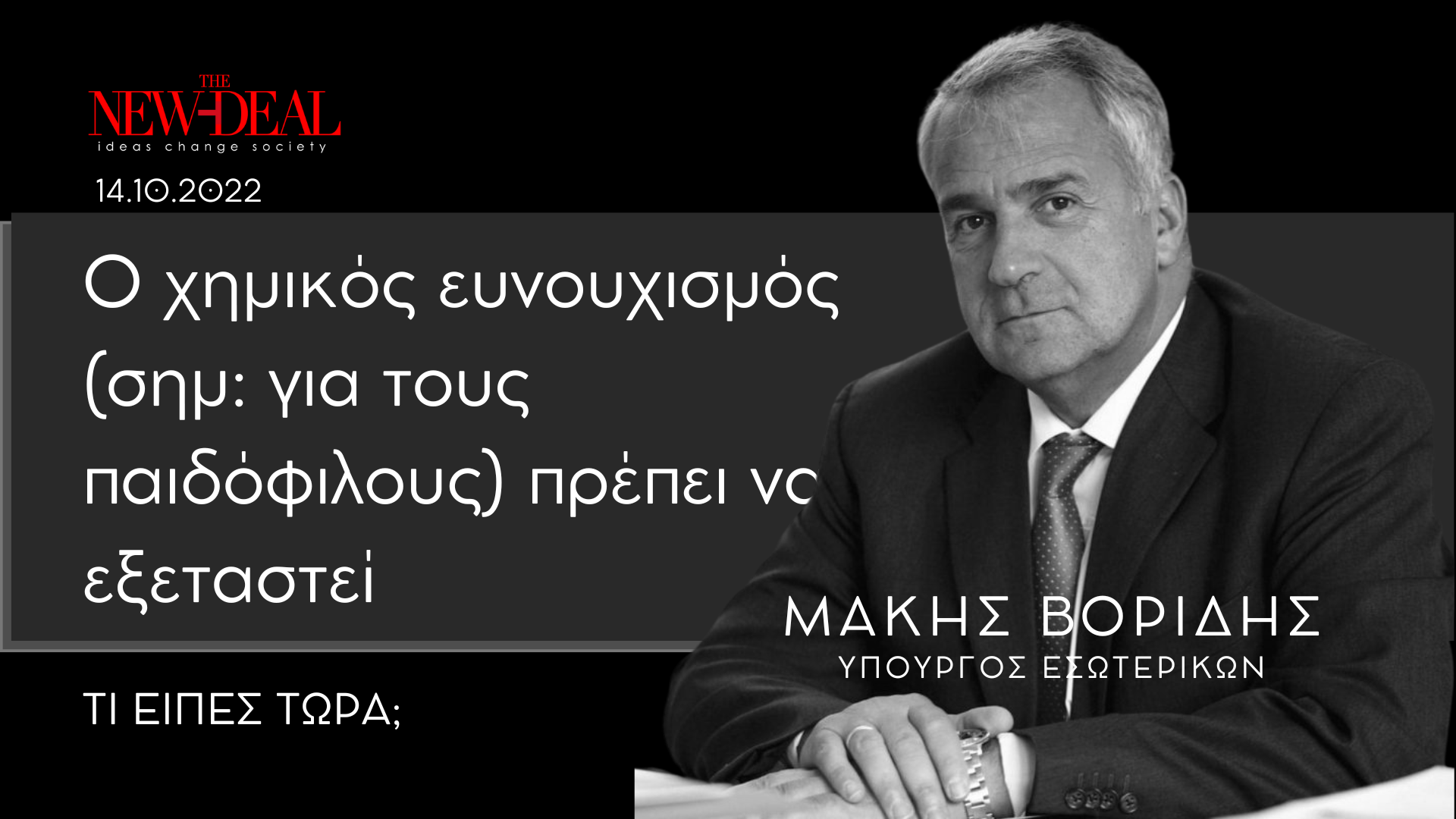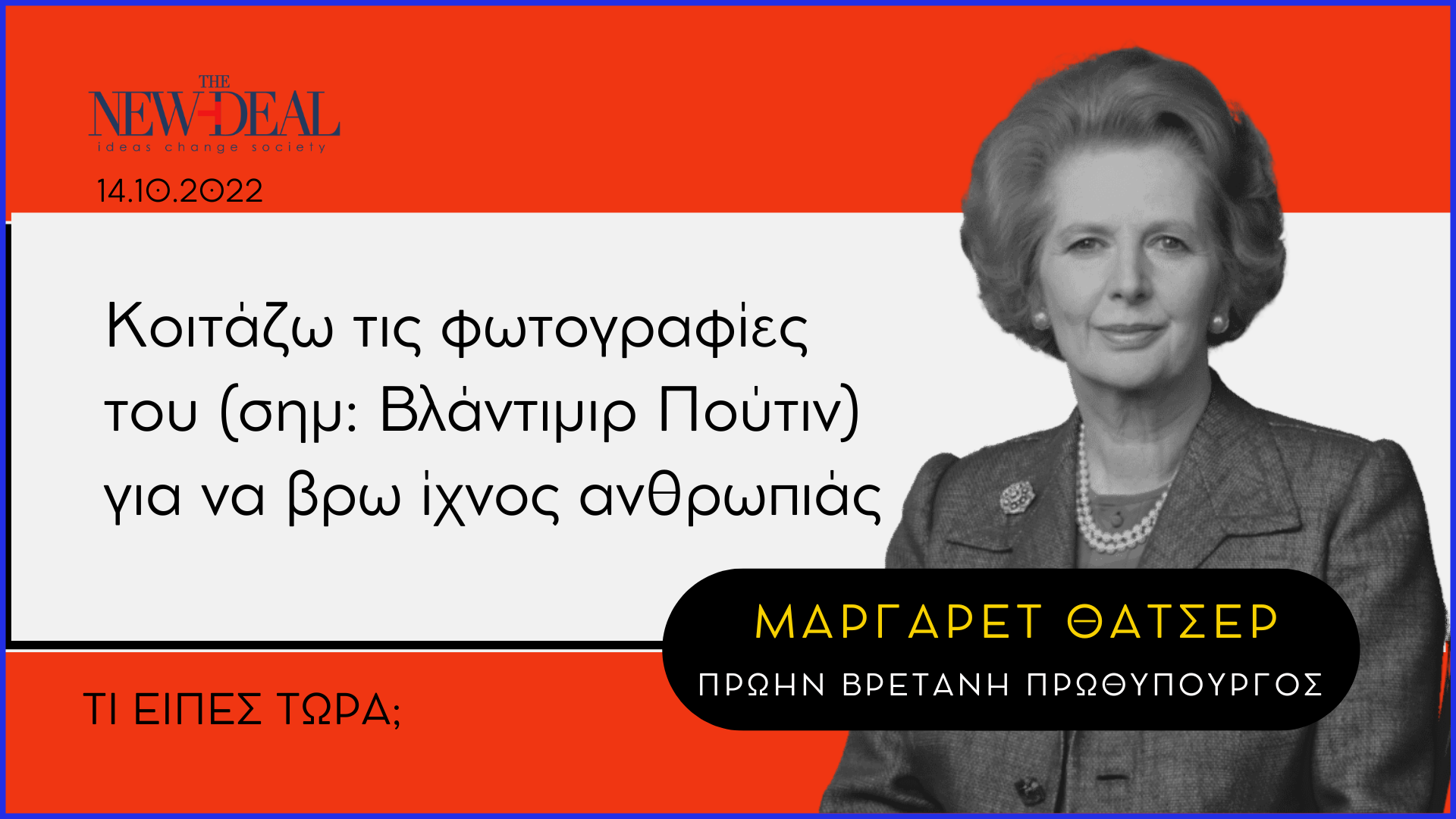“When bulls fight, frogs die”1, says a Greek adage. Ironically, this is the deadlock situation Greece is stagnating, transforming itself into a swamp, suffering under the bulls’ hooves. Accordingly, Greeks die, as frogs do.
The bulls – IMF’s Christine Lagarde and Eurogroup’s J.C. Juncker – fought at the Press Conference of the Eurogroup/IMF joint session of November 12, 2012, as a proof of the saying. A big pool of similar ongoing manifestations of the last three years exists already: these particular bulls fight a lot nowadays; it is not the first time they do so.
However, one may argue that this fight is the most severe one. One may, also, conclude that after fighting a lot but not viciously during the last years, the bulls prepare to give their big fight, over the greek drama: this is the one and as such, the most deadly one. This fight may conclude not only to the frogs’ death, but also to a bull’s death, or even to both bulls’ death. That severe it is.
Jean-Claude Juncker and Christine Lagarde publicly disagreed on the possibility of extending the timeline of Greece’s repayments to its creditors, from the year 2020 to the year 2022. This was the officially stated reason of disagreement, served with smiles, funny faces and appropriate body language, seeking all to hide from the eyes of the public (and the markets) a wider and deeper chasm. Diplomatic manners can be an embellished façade, but one should interpret the content of the disagreement in order to avoid the traps of the “looks”.
The official excuse was the timeline of Greek repayments, while the deeper disagreement between IMF and Germany/EU lies on Memorandum III. Memoranda I and II are the first two chapters of Troika’s neoliberal policies and have produced chaos in Greek society and economy, as also to the political establishment; financial figures could not escape as well. By all means, Memoranda’s policies have failed to produce a positive impact, as they were aiming to do.
Who is to blame for this uncomfortable situation? One can always blame the Greeks, “these lazy, cheating, corrupted bastards”, as the stereotype argues. The partial and inappropriate execution of the Memoranda is the official and most massively published explanation. The argument stands, but it cannot explain the other part of the explanation.
This other part comes from Troika’s failure to produce predictions based on reality and not fiction or desires. Memorandum II estimated a Greek recession of 2.2% for the year 2012; IMF’s “Global Prospects and Policies”, published in October this year, estimates the recession at 6%, while the “regulated” by EUROSTAT Greek Statistics Agency, ELSTAT, has published a forecast of 7,1%.
IMF’s Chief Economist Olivier Blanchard has admitted a “mistake” in calculating the impact of the cuts. Troika has predicted that a cut of $1 would produce a contraction of $0,5. The impairment proved to vary from $ 0,9 to 1,7, per $1 cut. In terms of technocratic standards, this is a disaster. Olivier Blanchard is still in place, while Greeks are accused for the situation: they did not enough!
Greece is now in its 6th year of recession, while it has delivered its sovereignty, due to a German demand. Therefore, Troika sets an Axe of Greece’s Suzerains. Their policies produced an unemployment “boom”: from roughly 11% to 23%, within 3 years time. GDP’s freefall reminds Redbull Stratos’ fall from the sky, while public debt lifts off with similar velocity.
Social cohesion disrupts, financial and political sustainability is at stake after 40 years of normal political life. Greece faces the real danger of becoming a “failed state”, term which becomes more and more apparent to the international reports coming from Greece: far-right extremism, xenophobia, poverty, lack of medicine, hatred, corrupted governors, bad businessmen, etc., set the whole picture. “Their problems”, say Greece’s partners, who admit quite loud their own merit in the problem, without accepting responsibility: the responsibility is all Greek.
However funny this may seem, a real drama of the Greek People lies behind. Let me give just a couple of data: 3.000-3.5000 people suicided – “Troika suicides” – since 2010; 70.000 businesses shut down and 70.000 more, expected to do accordingly, by end 2013; 25% of youth unemployment. Figures are ruthless in describing the Greek tragedy. The income factor has declined completely: Greece is after the “cliff”, falling to the ground and splashing quite soon. The impact of Troika’s policies cannot be described with another word than “catastrophe”.
The Eurogroup Meeting applauded “Greek sacrifices” and demanded “more from Greece”. Greece’s disbursements of €44 bn, a Troika obligation towards the country, blocked instead of being paid in June, September and December coming; “this is a Greek problem”, as was implied. Greeks accuse the Troika it uses the financial aid as a tool to make them suffer “more pain”, resulting to markets’ gain among other, more vital gains; these will be collected now or in the near future. This “tool” gives Greece’s “partners” a leverage to push their interests and agendas on the whole body of the Greek society (leadership, parliament, people, market, etc).
The week before the November 12th summit, Greeks were asked to vote in the Parliament of an austerity package that will make catastrophe complete: no Greek will escape it! Greek economy got sentenced to death, to be brief: budget cuts of € 13.9 bn (7% of GDP), in a country facing recession of 7%. This is a recipe for disaster, yet it was imposed. Greeks voted for the pack and waited for Troika’s response. The vote was said to be a prerequisite for Troika’s unblocking of the payments. Troika responded Greeks should do more.
One could say the situation reminds “blackmail”; the word for countries and politics, however, is “entrainment”, the worst possible situation, according to strategic analysts. Greece is entrained, in strategic terms: it has capitulated and delivered its sovereign powers. Now, as all conquered lands in the past, Greece pays the price, as frogs also do in the adage.
This brings me to the central question of our world problems: why do the bulls fight? What’s the real issue? Let’s have a look to the situation. Admitting the two first programs have failed, Troika prepares a new program, Memorandum III. This need to fill up the “financial black holes” of the previous two: Eurogroup/IMF summit’s report raises that number to €32 bn. Finding (an agreement on) the money, is hardly the real issue of the bulls: the amount is that small (in terms of European and global GDP) they would not even bother to talk about it but through the lowest ranges of diplomacy, if high-importance repercussions were not involved.
The timing of the bulls’ clash makes things even more difficult to understand, if one accepts that IMF and Eurogroup act under a sense of economic responsibility. Four days after the closing of the Meeting, on November 16th, Greece faced the danger of not being able to cover bonds of total value up to € 5 bn, which were – most probably – covered with short-term bonds, of 30-60 days, issued by the Greek authorities, as also happened in a couple of times in the past (May and August).
The € 5 bn were supposed to be covered from Troika’s €44 bn payments, supposed to get unblocked after the summit, should the Greeks vote in favor of the austerity package the week ago. Should the bonds stay uncovered, world economy would face a drama much bigger than the Lehman Brothers’ one. A Greek failure would cost up to $ 17 trillion in the long run, according to the German Bertelsmann Foundation2. An avalanche effect can be expected in such cases and, afterwards, all can be expected. None of these “expectations” is of a positive nature. Therefore, the situation is critical.
“Not finding a solution for Greece’s long-term debt sustainability”, under such an urgent financial framework of necessities is irrational; yet it happened. Memoranda I and II preview sums up to €240 bn; the clash was officially excused on the covering of the added €32 bn, in the next eight to ten years. Long-term sustainability, the essence of the disagreement, was mentioned. There lies the real excuse of the bulls, as the “solutions” offered from the two sides of the Atlantic differ quite much and bear with multiple repercussions, in terms of Power.
IMF and the US government ask for the “haircut of the sovereigns”. If this takes place on Greek bonds, the same request will be soon coming from (or for) Spain, Italy, Portugal, Cyprus, France and the rest of the EU: a domino effect is expected, if not an avalanche one.
Accordingly, the German Treasury, “Europe’s last resort of reserves” de facto, will be losing its financial ground; Germany will be losing its competitiveness and its economic power; Europe’s “engine” faces a breakdown. The same applies to all European nations. Europe as a whole is in danger of becoming a financial, social and economic “swamp”, similar or worse to the current Greek one. Germany will lose its (pre)dominance to Europe or will have to make a war in order to secure it, involving all means necessary. The rest of the European states are not expected to let that happen peacefully: they never did.
The “haircut of the sovereigns” could fire up a chain-reaction with catastrophic results for Europe as a whole. The IMF “request” cannot be accepted from Germany, neither should it be by the rest of the Europeans. However, European unity stands no more and the South feels it needs protection against Merkel’s obsessions on austerity, which serve as a tool for German political gains, rather than as one of better economic efficiency of the states involved. European Solidarity under German dominance declined to tool of imposition.
Consequently, France, Italy and Spain put their votes behind Lagarde and not Merkel, as ECB also does, for other reasons. Europe as a whole seems entrained between Lagarde and Merkel, IMF/US and Germany: Greeks are not the only frogs; they are just the first to be observed as such. The rest follow.
The Press Conference was a clear confirmation of a new circle of the Big Fight, with vicious implications this time. While Barack Obama returned to the Oval Office, the “gloves are off”. After the Press Conference of Brussels, Lagarde flew far away from Europe, at Southeast Asia. There, when she was asked about the European disagreement, she stated nothing is over “till the fat lady sings”. She threw the glove to Angela Merkel and waited her response.
Neither Lagarde, nor Merkel seem anxious to step back on their demands. To make that apparent, Merkel travelled to Moscow, reminding Europe the Ribbentrop journey to Molotov, back in 1939. However, Putin gave her no space to claim a victory in terms of results of the journey. Actually, in their Press Conference in Kremlin, another Bulls Fight took, also, place, instead of friendly announcements.
The Big Fight is on, gloves are off and more bulls get involved as it gets more and more vicious. US and Germany – the real raging bulls – fight about Europe’s Power, as it is a prerequisite for World’s Power; they fight about Territory; they fight about future mates. They do nothing more than what all Bulls do, all Big Powers do, all Emperors and Rivals do, each time World Order is getting reshaped.
Germany tries to unify Europe under its leadership, taking advantage of the momentum of the financial crisis that granted the German Treasury a significant importance. Imposing its own rules and interests to the rest, Germany makes the same mistakes it did in the past, and triggering an intra-European conflict. This is not the most promising way to achieve one’s goals, a historian would argue.
USA finds this German “reaction” inconvenient for its interests (even if well-expected). Some European countries find it inconvenient, too, more and more. Spain, Italy, France (under the F. Hollande) and the UK became Germany’s internal opponents to the EU. The cohesion of the EU exists no more, in real political terms. Stratfor’s George Friedman, in his 13th of November article foresees that “Europe will come back to the state it was before WW II”. The title of the article is “U.S. Foreign Policy: Room to Regroup”. This regrouping sets a big problem for Europe, as it prefers Europe destroyed: this will make the balancing of Europe’s collective power (from distance) much easier. There lies the core issue of the Big Fight.
What Lagard’s smile and Juncker’s funny faces aimed to hide is exactly that: we do not anymore have to do with signs of an “innocent” fight of the bulls; this is a bulls’ fight to the death. US and Germany fight for the future universal “balance of power” and this is why a common understanding is very difficult to be found. As borderlines and imperial dreams collide with one another in Eastern Europe, in South, in Western Europe, in China, and in East Asia, geopolitics push them to the edge. This is the revenge of geopolitics, after neoliberal doctrines collapsed, one could argue. And when geopolitics become central, results get devastating.
Tensions and fights will get even more severe in the coming months and years. Greece may pay the price first, but it will not be the only: Greece is closer to the bulls’ hooves, but it is not the only frog in the world financial swamp. With German elections coming, the American “pressing” to Angela Merkel, either through IMF or directly, will be upgrading, especially as NATO activities are expected in East Mediterranean and the Middle East, which gives an advanced military US presence in the region de facto.
Closing up, let’s sum up: all possible “solutions” offered to the Greeks by the Suzerain Forces of the Troika, set no real solution to the country’s problems. These cannot be solved if the European Economic Union remains incomplete. Greek debt can only be handled in parallel with all the other debts of the EU, as the Monetary Union leaves no real space for a “unique solution”. The Banking Union should be also completed, in parallel with the Political Union. If all these don’ t happen soon, Greece will suffer the death penalty soon.
The time-frame of US “fiscal cliff” or “austerity bomb”, as Krugman3 argues, the Dodd-Frank act coming into action on 1/1/2013, along with Basel III previsions worldwide enforcement, combined also with the negative signs of American, European and Chinese economies, set a very unpromising framework, for a very vicious fight to take place, aiming to find deathless result. This is a very difficult equation, no doubt about that.
Remembering the Greek adage, death becomes a possibility for bulls themselves as well, as long as the “financial swamp” deepens and widens up, while they do not stop their fight. Swamps swallow the bulls from time to time, as bulls can fight and they can also swim, or float; what bulls cannot do is fight, swim and float in the same time. Yet, this is exactly what they do.
So, the Bulls can fight and they do; when they do, frogs die. The bulls can kill as many frogs as they decide or were that unlucky to become their ground. Some bulls may kill other bulls, too. But two questions remain: can the bulls think? Or they just fight till they win, die or get swallowed by the swamps? These are the questions…
1 Greeks put a bull fighting in the swamp due to the very unique species of “water-buffalo” (photo), which lives in the Northeastern part of the country, in the swamps of Eastern Thrace, next to the River of Evros that sets the natural border with Turkey.
2 “Grexit could cost € 17.000 bn until 2020”, www.capital.gr, 17/10/2012
3 “The Austerity Bomb”, Paul Krugman, 14/11/2012, NY Times

